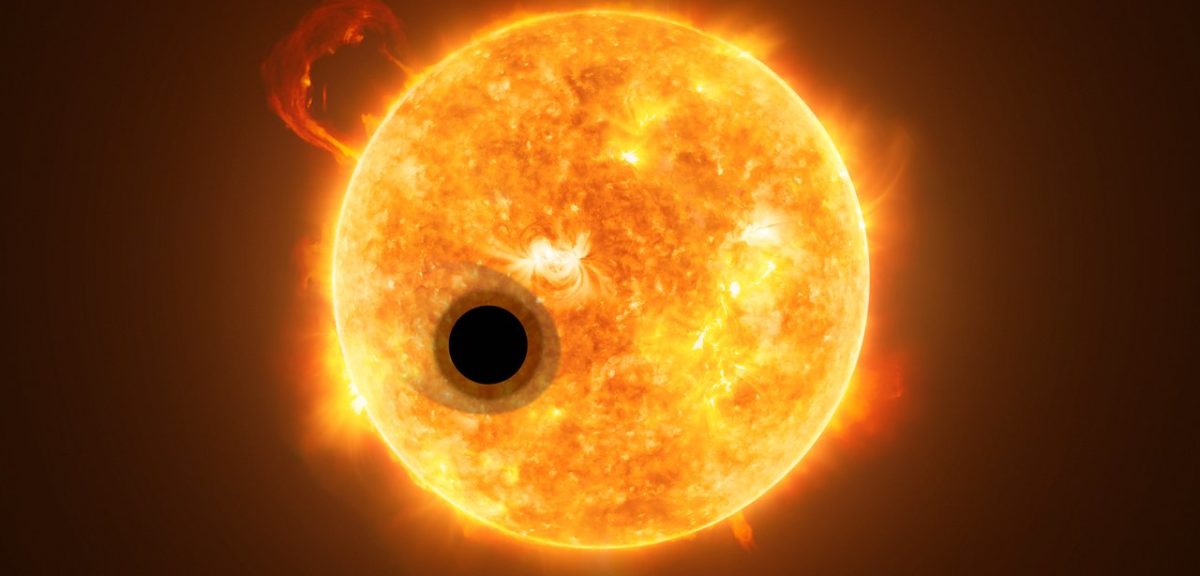Scientists say for the first several hundred thousand years or so after the Big Bang, there were virtually only two elements in the universe, hydrogen, and helium.
A hydrogen atom is made of only one proton and one electron, and a helium atom has two each of protons, electrons, and neutrons.
Hydrogen and then helium are still the most abundant elements in the universe.
It’s kind of puzzling, since helium is so plentiful in the universe, that until recently, astronomers haven’t been able to detect helium in any of the exoplanets found so far, despite a concentrated effort to look for it.
But now, a team of astronomers, led by Jessica Spake, a Ph.D. student at the UK’s University of Exeter, have detected helium in the atmosphere of an exoplanet called WASP-107b.
WASP-107b is described as a “Super Neptune” type of planet that circles an active K6 type or orange dwarf star, 200 light-years from Earth in the constellation, Virgo.
The team made their discovery by using the Hubble Space Telescope’s Wide Field Camera 3.
A study outlining the discovery of helium in WASP-107b, by Jessica Spake and her team has been published in the journal, Nature.

























commending Jessica Spake and her team for their great efforts. Hope their discovery will add to the value of human safety in the near future.